Analysis + Opinion | 2019
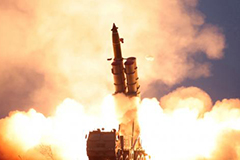 |
Analysis + OpinionDecember 30, 2019Is a new nuclear age upon us?Nicholas L Miller, Vipin NarangForeign AffairsThe year 2019 has been an inflection point for three key features of a new nuclear age: renewed nuclear competition; the emergence of new nuclear powers; and a greater tolerance for escalation among existing nuclear powers. |
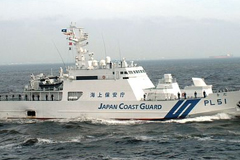 |
Analysis + OpinionDecember 12, 2019The ever-evolving importance of Japan’s coast guardMina PollmannThe DiplomatTwo recent changes highlight the multifaceted role the JCG will continue to play in Japan’s defenses. |
 |
Analysis + OpinionDecember 10, 2019End the ‘Global Gag Rule’Shola LawalThe Boston GlobeNigeria needs to speak up and rethink its strategies on reproductive rights as a matter of urgency |
 |
Analysis + OpinionDecember 6, 2019Exporting the American dreamShola LawalThe Boston GlobeAn increasing number of migrants who’ve been stopped from entering the United States are opting to stay in Mexico, changing the country’s demographics. |
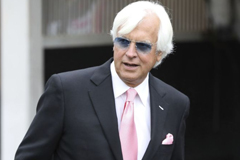 |
Analysis + OpinionNovember 25, 2019Opinion: Saudi money in US horse racing is the sport’s next moral jamJohn TirmanLos Angeles TimesSaudi money in US horse racing is the sport’s next moral jam, writes John Tirman, the executive director of the MIT Center for International Studies. |
 |
Analysis + OpinionNovember 7, 2019Iraqi protesters demand constitutional change. Can they make it happen?Marsin Alshamary and Safwan Al-Amin The Washington PostThe bid to rewrite Iraq’s 2005 constitution has been surprisingly accepted and promoted by political elites, some of whom were involved in its original drafting. However, their positions are not as aligned with those of the protesters as they may appear to be. |
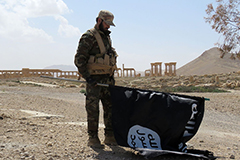 |
Analysis + OpinionOctober 29, 2019Baghdadi’s martyrdom bumpSantiago Segarra, Ali Jadbabaie, and Richard NielsenForeign PolicyIt is clear that the death of Islamic State leader Abu Bakr al-Baghdadi will damage the organizational and strategic capacity of the already beleaguered Islamic State. But will it meaningfully undermine the popularity of Baghdadi’s militant ideas? |
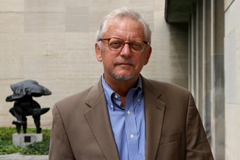 |
Analysis + OpinionOctober 28, 2019Tirman featured at “Tyranny Comes Home” symposiumJohn Tirman10z US PoliticsIt was recently reported that the United States government is denying passports to citizens who were Hispanic people, who were born or who earned citizenship, and lived near the border with Mexico. |
 |
Analysis + OpinionOctober 22, 2019Trump's asylum policy is a death sentence for Africans fleeing violenceShola LawalThe Boston GlobeWhile media coverage of the migrant crisis at the border has focused on the thousands of asylum seekers from Central America, little has been reported about the waves of migrants from African countries attempting to cross. |
 |
Analysis + OpinionOctober 3, 2019With trophy hunting, wildlife losesShola LawalThe Boston GlobeI know at least five Nigerians, including myself, who have had to throw large chunks of beef in the trash as we approached US customs officials. US border policies don't allow the import of meat products from African countries because they may carry diseases. That's fair. |
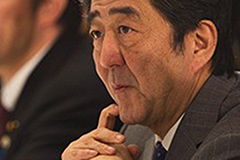 |
Analysis + OpinionSeptember 30, 2019Japan’s whack-a-mole foreign policyRichard J SamuelsThe Boston GlobeJapanese leaders have recently faced a furious barrage of foreign policy and national security challenges, some of their own making. Each has presented itself as if a game of whack-a-mole—some in which the unhidden and unpredictable hand of President Trump has been prominent. |
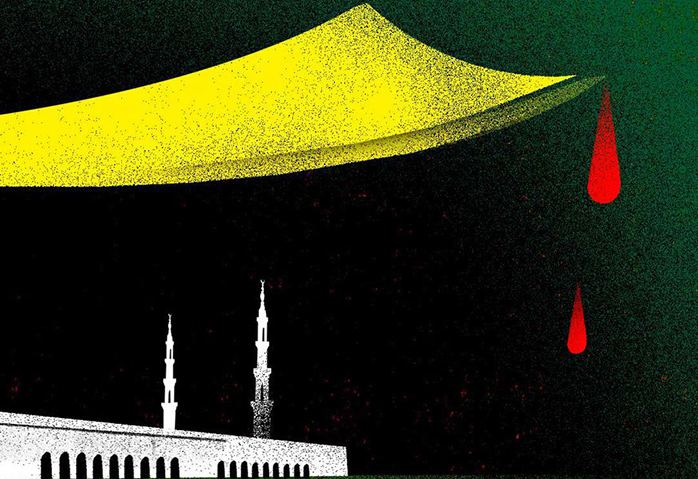 |
Analysis + OpinionSeptember 29, 2019Its monarchy has left Saudi Arabia fragile and unbalancedHala Al DosariJamal Khashoggi and I came from very different backgrounds, and this shaped our views on the politics of our Saudi homeland. There were many issues on which we didn’t agree. But we did share one crucial belief: that untrammeled power is always a danger—and particularly in the case of Saudi Arabia. |
 |
Analysis + OpinionSeptember 12, 2019What digital nerds and bio geeks have to worry aboutCNNCode is code, but because we're dealing with molecules—and sometimes actual forms of life—the risks can be much greater, explains Larisa Rudenko and her coauthor Bruce Schneier, in a recent CNN opinion piece. |
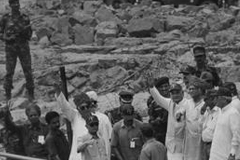 |
Analysis + OpinionAugust 22, 2019Why India wants to break its decades-old nuclear pledgeChristopher Clary and Vipin NarangBBC NewsChristopher Clary and Vipin Narang examine the implications for peace and security in South Asia after India's defence minister suggested that the country may re-evaluate its "no first use of nuclear weapons" doctrine. |
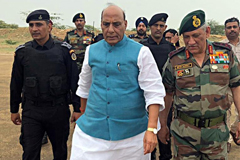 |
Analysis + OpinionAugust 18, 2019‘No first use’ nuke policy isn’t dead, but losing sanctityChristopher Clary and Vipin NarangHindustan TimesA policy of no first use is, in fact, a promise not to do something in the future: not to use nuclear weapons first in a conflict. |
 |
Analysis + OpinionAugust 14, 2019Saudi Arabia must dismantle the male guardianship systemHala Al-DosariThe Washington PostIn a vague statement published recently by a national newspaper in Saudi Arabia, the government announced that it will consider altering its restrictive male guardianship laws for women. |
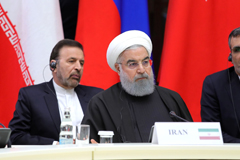 |
Analysis + OpinionJuly 11, 2019How Donald Trump pushed Iran to the bombJim WalshCNNSince the day he took office, President Donald Trump has been caught in an Iran trap, or more precisely, two traps. Jim Walsh explains in a recent CNN opinion piece. |
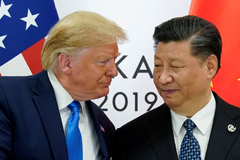 |
Analysis + OpinionJuly 3, 2019China is not an enemyM Taylor Fravel , J Stapleton Roy , Michael D Swaine , Susan A Thornton and Ezra VogelThe Washington PostExperts published seven propositions that represent their collective views on China, the problems in the US approach to China and the basic elements of a more effective US policy. |
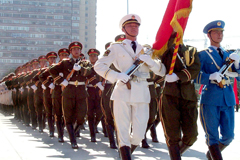 |
Analysis + OpinionJune 11, 2019Jaw–Jaw: A look at the PLA's history of planning for war with Taylor FravelM Taylor Fravel and Brad CarsonWar on the RocksHow does China think about the nature of war? How has China’s conception of war changed over time? What are “military guidelines” in Chinese statecraft and what leads the Chinese leadership to develop new ones? These and other questions are discussed in the latest episode of Jaw-Jaw, where Professor Taylor Fravel discusses his recent book Active Defense: China’s Military Strategy Since 1949. |
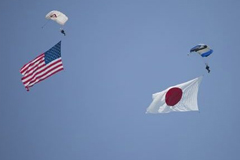 |
Analysis + OpinionJune 7, 2019Learning to embrace an unequal allianceMina Pollmann Tokyo ReviewTo keep the military alliance between the US and Japan sustainable and effective during the tumult of a global power transition, both sides need to update how they think about the “grand bargain” that underlies it. |
 |
Analysis + OpinionMay 23, 2019Even conservative Iranians want closer ties to the United StatesFotini Christia, Elizabeth Dekeyser, Dean KnoxForeign PolicyFor most in the country, Washington isn’t the archenemy—at least for now. |
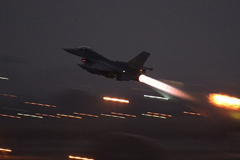 |
Analysis + OpinionMay 17, 2019Time to pull US nuclear weapons out of TurkeyHarvey M SapolskyDefense OneStoring nuclear weapons close to trouble is a bad idea, and giving Ankara a shared finger on the nuclear trigger is rapidly losing its charm. |
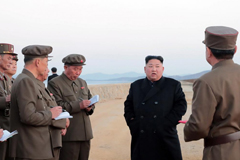 |
Analysis + OpinionMay 16, 2019Why North Korea is testing missiles againAnkit Panda and Vipin NarangForeign AffairsAfter 522 days without a ballistic missile test, North Korea is at it again. On May 4, two months after the failed Hanoi summit, Pyongyang fired a new type of solid-fuel short range ballistic missile and tested two separate multiple rocket launch systems. |
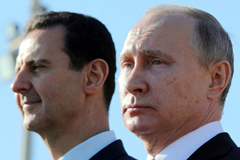 |
Analysis + OpinionApril 14, 2019Russia might regret the US drawdown in SyriaCarol R SaivetzLawfareThe Syrian conflict, while hardly over, is diminishing. The Syrian people clearly lost, but who—other than the barbarous Assad regime—won? |
 |
Analysis + OpinionMarch 18, 2019The geography of Gulenism in TurkeyTugba Bozcaga, Fotini Christia Foreign PolicyAny government would have reason for concern if a group with undemocratic motivations such as the Gulen movement reached enormous capacity in bureaucracy and social services. |
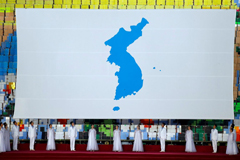 |
Analysis + OpinionMarch 12, 2019The Hanoi Summit – we asked Se Young Jang what happens next in US-North Korea relationsSe Young JangThe National Interest“Washington and Pyongyang need to promptly resume working-level negotiations and restore trust in each other as negotiating partners.” |
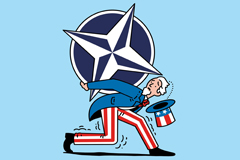 |
Analysis + OpinionMarch 10, 2019Trump aside, what’s the US role in NATO?Barry R PosenThe New York TimesPresident Trump has many bad ideas. Reconsidering America’s role in NATO isn’t one of them. NATO’s founding mission has been achieved and replaced with unsuccessful misadventures. |
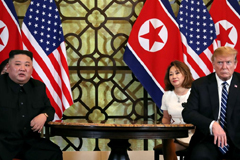 |
Analysis + OpinionMarch 5, 2019The Hanoi Summit was doomed from the startAnkit Panda and Vipin NarangForeign AffairsIt should come as no surprise that the Hanoi summit between the United States and North Korea ended in failure. The two countries’ incompatible demands made reaching a new agreement—not just on North Korea’s nuclear program but on anything—almost impossible. |
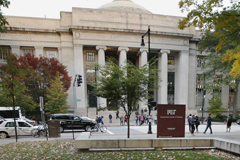 |
Analysis + OpinionMarch 5, 2019Woods Hole, MIT targeted by Chinese hackersCallum Borchers, Paris Alston, Walter WuthmannWBURThe Wall Street Journal reported Tuesday that MIT and more than two dozen other universities have been targeted by Chinese hackers. Joel Brenner joins as a guest in the conversation exploring what kind of technology the Chinese government might be interested in, and just how vulnerable these research institutions are to cyber attacks. |
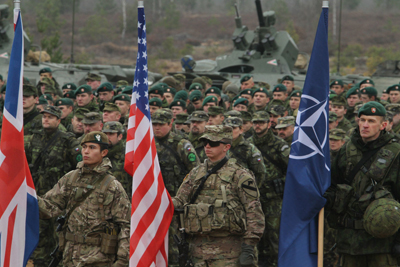 |
Analysis + OpinionMarch 1, 2019It is long past time to stop expanding NATOMatthew Cancian and Mark CancianWar on the RocksNATO should have learned from its 2004 inclusion of the Baltic states, militarily weak and exposed countries whose defense now constitutes a major, expensive, and perhaps unachievable military requirement. Instead, the expansion of membership has continued. Albania and Croatia joined in 2009, Montenegro in 2017. It’s time to stop NATO expansion. |
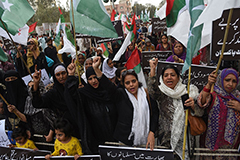 |
Analysis + OpinionFebruary 25, 2019After terrorist attack in Kashmir, will India seek vengeance or de-escalation?Christopher ClaryThe Washington PostOn February 14, a suicide bomber in Kashmir drove his explosives-filled vehicle into a bus carrying members of India’s paramilitaries, killing over 40 and injuring dozens more. An Islamist terrorist group, Jaish-e-Muhammad—based in Pakistan though nominally banned by the Pakistani government—reportedly took credit for the attack. |
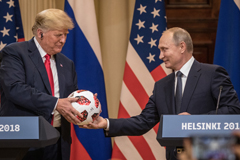 |
Analysis + OpinionFebruary 23, 2019Winning the nuclear game against Putin’s RussiaTobin HarshawBloombergIt’s a question of who would strike whom first, and who would enter the fray. Interview with Vipin Narang on nuclear games and strategy, and the upcoming second meeting with President Donald Trump and Kim Jong Un in Vietnam. |
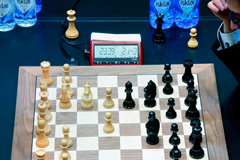 |
Analysis + OpinionFebruary 16, 2019Winning the nuclear game against North KoreaTobin HarshawBloombergVipin Narang thinks many moves ahead in the international chess of modern deterrence. While not a game theorist himself, Vipin Narang’s beautiful mind is pushing forward on how traditional nuclear deterrence strategy can be modernized for the new era of great-power conflict. |
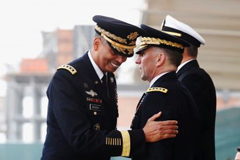 |
Analysis + OpinionFebruary 13, 2019US–South Korea military negotiations could cost the allianceSe Young JangEast Asia ForumInter-Korean rapprochement, ushered in by the series of North–South summits and working-level meetings that took place in 2018, is changing the security environment on the Korean Peninsula. While reconciliation between North and South Korea develops, the latter’s relationship with the United States is running into difficulty. Seoul and Washington failed to renegotiate a defence cost-sharing agreement in 2018, which then expired on 31 December. |
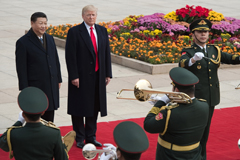 |
Analysis + OpinionFebruary 12, 2019US-China relationship guidelinesAsia SocietyAsia SocietyA new report published by Asia Society’s Center on US-China Relations and UC San Diego’s 21st Century China Center offers recommendations for American policymakers. Among its authors is Taylor Fravel. |
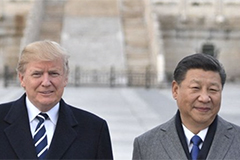 |
Analysis + OpinionFebruary 8, 2019The 'new Cold War' with China is way overblown. Here's why.Joshua ShifrinsonWashington PostIs a new Cold War looming—or already present—between the United States and China? Many analysts argue that a combination of geopolitics, ideology and competing visions of "global order" are driving the two countries toward emulating the Soviet-US rivalry that dominated world politics from 1947 through 1990. |
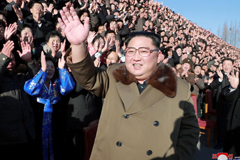 |
Analysis + OpinionFebruary 6, 2019North Korea and America’s second summitVipin NarangThe National InterestThere are several possible outcomes I think from the summit if and when it happens.
|
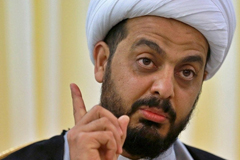 |
Analysis + OpinionFebruary 4, 2019The role of Iraq’s influential Shiite clerics is changing. Here’s how.Marsin AlshamaryThe Washington PostIn a recent interview, an influential Iraqi Shiite cleric and militia leader warned the United States to withdraw its troops from Iraq. The leader, Qais al-Khazali, represents a class of politician preachers who have come to dominate the political scene in post-2003 Iraq. The ascendancy of these clerics raises questions about the role of the Shiite religious establishment in contemporary Iraqi politics. |
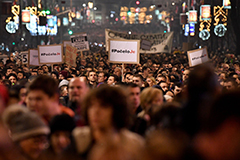 |
Analysis + OpinionFebruary 1, 2019Serbian journalists are under attack. Does the international community care?Una Hajdari The New RepublicSupported by the US and EU, praised at Davos: President Aleksandar Vucic is on a roll. No one seems to want to contemplate the appalling assaults on press freedoms. |
 |
Analysis + OpinionJanuary 29, 2019Great power competitionJoshua Shifrinson, Emma Ashford, and A. Trevor ThrallCato InstituteJoshua Shifrinson, author of Rising Titans, Falling Giants, discusses foreign policy trends on a Cato Institute podcast. |
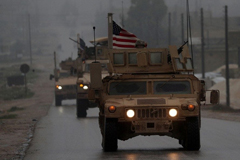 |
Analysis + OpinionJanuary 24, 2019Trump wants a safe zone in Syria. Is that even possible?Sara PlanaThe Washington PostA Jan 13 tweet by President Trump revived the idea of imposing a safe zone--an area meant to protect civilians and minimize refugee burdens within a war zone--in Syria. Syria today looks very different from 2016, the last time there were serious public calls for a safe zone, says Sara Plana in a Washington Post oped. |
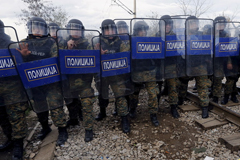 |
Analysis + OpinionJanuary 16, 2019National borders don't stop in the physical world – they're in cyberspace tooMeicen SunWorld Economic ForumState sovereignty rages on with each vehicle returned and each visa revoked. But in case you thought the divisions were just physical, virtual borders have also been subtly dividing the world, writes Meicen Sun in an article for the World Economic Forum. |
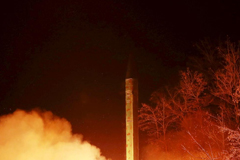 |
Analysis + OpinionJanuary 11, 2019The year of living dangerously with nuclear weaponsNicholas L Miller and Vipin NarangForeign AffairsIf the Trump administration’s foreign policy continues on its current trajectory, there is a significant chance that the United States could find itself in not one but three nuclear crises in the next 12 months. |
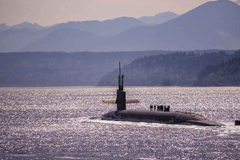 |
Analysis + OpinionJanuary 7, 2019Are ballistic missile submarines still the best deterrent for the United States?Owen R. Cote Jr.Bulletin of the Atomic ScientistsThe service lives of the US Navy’s 14 Ohio-class nuclear-powered, ballistic nuclear missile submarines (SSBNs)…are coming to an end while their replacements, the new Columbia-class subs, undergo research and development. |
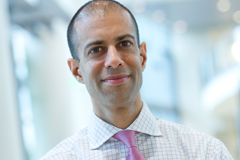 |
Analysis + OpinionJanuary 1, 2019India’s counterforce temptations: strategic dilemmas, doctrine, and capabilitiesChristopher Clary and Vipin NarangInternational SecurityIs India shifting to a nuclear counterforce strategy? The conventional wisdom is that India only reluctantly acquired nuclear weapons and has been a restrained nuclear weapons power that adheres to a no-first-use (NFU) policy and rejects the possibility of nuclear warfghting. |


